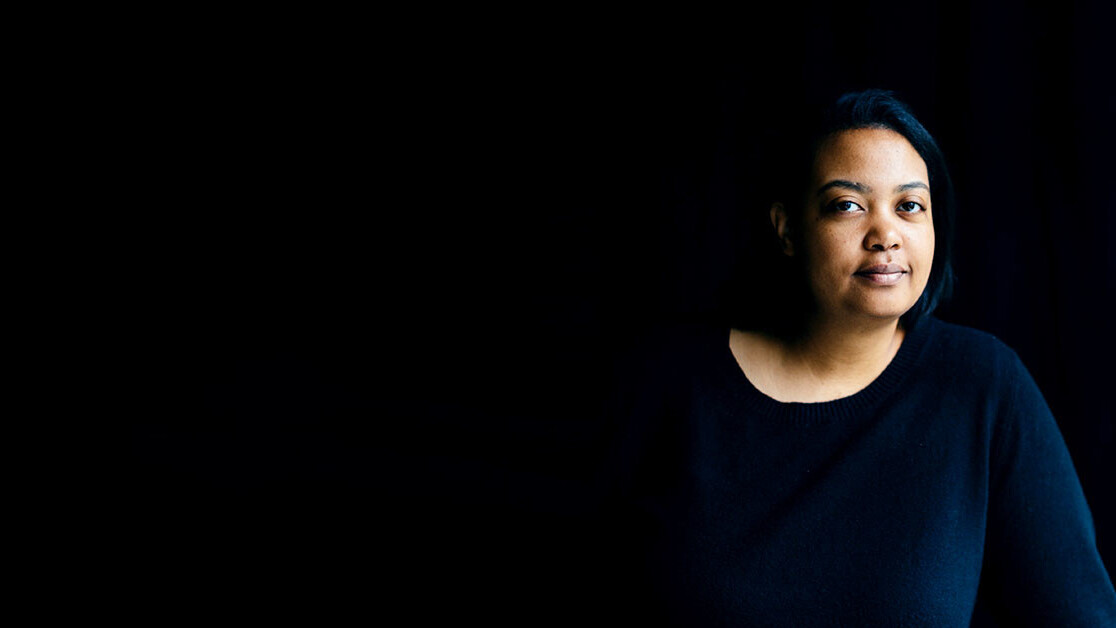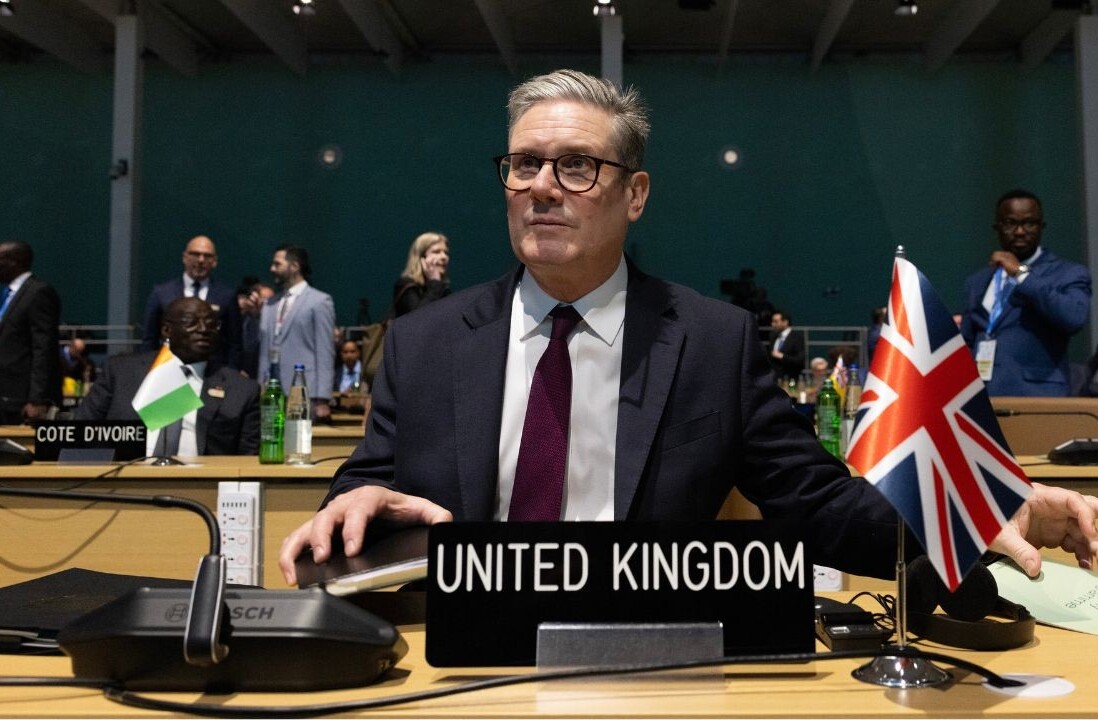
Arlan Hamilton, CEO and founder of Backstage Capital, wants to see more color in venture capital.
Backstage focuses on “investing in underestimated founders,” making Hamilton one of the few pushing for change in VC. Her story is fascinating, and has touched many — Arlan was homeless only three years ago, and had no formal education or experience in finance.
To date, Backstage Capital has invested more than $4M in 100 companies all with at least one founder who is a woman, person of color, or LGBTQ+. Right now, they’re working on a $36m investment into black women-led projects, $1 million at a time. The project is called the “It’s about damn time fund.”
The rumors are true. Today at #USOW2018 I announced that my venture capital firm @Backstage_Cap has launched a $36m fund that will invest in Black women founders $1mill at a time. Thank you to the Backstage Crew, headliners, LPs, mentors & network for making this moment possible. pic.twitter.com/yT1SMQOFAR
— Arlan ?? (@ArlanWasHere) May 5, 2018
She’s also a vocally black, gay woman who is raising her community up with her. After starring as the subject of StartUp podcast’s season seven and becoming the first black woman who is neither an entertainer nor sports figure to cover Fast Company in October, she has transformed from Silicon Valley’s most unlikely VC to one of their most likely successes.
Is this real life? I’m the October COVER of @FastCompany! Also the first Black woman who isn’t an entertainer/athlete (@Oprah, @serenawilliams, @Beyonce, @LenaWaithe — my favs!) to be on the cover. I never could have imagined this 3 yrs ago? SO grateful. https://t.co/KInpR6TRxr pic.twitter.com/2YlpsILfsI
— Arlan ?? (@ArlanWasHere) September 13, 2018
We recently had Hamilton host a TNW Answers session, where we, along with our readers, were able to ask her anything for an hour. Here’s what we learned.
Why is diversity in venture capital important?
Silicon Valley venture capitalists usually fit into a certain demographic — white, male, straight. CB Insights Research just published their annual list of the top 100 Venture Capitalists — 64 percent of this year’s were white men, with only nine percent being women and four percent women of color. We made a graphic showing the gender breakdown of these top 100 VCs:

And it’s not the only study proving painfully low diversity numbers. According to a study by Richard Kerby, the demographic breakdown of the entire VC industry from 2018 is one percent Hispanic, three percent black, and 70 percent white. Here’s a comparison with that of 2016:


Can’t tell the difference? That’s because there’s barely one at all. Like tech, it’s a painfully non-diverse industry, but unlike tech, it doesn’t appear to be trying to change.
While diversity for diversity’s sake is a wonderful idea, VC funding revolves around money. Many treat diversity hiring as a luxury to their business, and therefore deprioritize it when hiring, but diversity is actually good for business. Diversely-led VC funds better understand the community from where they came, making it easier to cater to the real needs of that community.
When TNW’s Cara Curtis asked why she thinks it’s important for investors to invest in female-founded companies, Arlan responded: “Well, women make up ~half~ of the human population. That alone is enough of a reason to me. I have many others… but I’m going to leave it there because you can hear that once and it never really gets old.”
For reasons unknown, the VC community is still slow to pick up on the idea that women- or POC-led funds know what women and POC want and need. And Arlan says investing in minority entrepreneurs’ business ideas has opened her eyes, and taught her that she’ll “never get to see it all, and that is a wonderful thing.”
Backstage Capital
Backstage Capital was founded in 2015, when Arlan had no financial experience or education and was spending her nights sleeping on the floor of San Francisco International Airport and couch-surfing. But she had a keen interest in startups, and would fiercely watch SharkTank: ”I used to yell at the screen like I was an investor, and respond to the investors to tell them why they were wrong.”
Backstage Capital got its name thanks to Arlan’s mom and her background in entertainment:
“I casually asked my mom what she thought I should call the fund, thinking she would take some days to think about it. She responded within minutes and said ‘How about Backstage? since you work with musicians backstage to help them get ready for stage…and you’ll be doing the same with business owners.’ My mom is a genius.”
Arlan has been praised for getting so far without financial training, but still emphasizes the importance of education:: “I don’t know a ton about financial modeling or forecasting, for instance, and I’m sure knowing that would be helpful.”
“I think education is really important. Not sure what I think about institutionalized, for profit education. I know a lot of things that people with MBAs don’t know or haven’t been exposed to. So I feel I have an edge.”
Arlan credits her team for making up for any gaps in knowledge she may have: “I also hired a lot of people who went to colleges and universities and who have those skills. They do the things I can’t, and I learn from them along the way. I was a really good student in school, and could have gone to a college, but I was restless, broke, and really not inspired by four more years of being told I was wrong.”
“But that doesn’t mean I’m not hyper curious. And I’m a forever-student. I’m figuring out spreadsheets and CRM and all that little by little.”
What advice would Arlan go back in time to give herself? “I would have taken more time to myself in the earlier days, because I ended up in the hospital a few times over the past six years, and it was mostly due to stress. I would not put as much on my shoulders.”
Arlan’s advice: Be selective
When it comes to choosing employees, founders, and projects, one theme underlies Arlan’s answers — be thoughtful and deliberate with your choices, even if that means saying no to a golden opportunity.
This, Arlan says, has happened many times: “Think of it this way: If you were an investor who only invested in fintech, and you were disciplined, and someone came along with the world’s best baseball bat. The baseball bat would make you millions, but unless it was also an ATM, it wasn’t in your thesis. You’d respectfully decline.”
“I am disciplined in our focus. I am happy and ecstatic to be able to invest in the companies we are able to. I will make many investments through Backstage and personally over the next few decades and my thesis will evolve as the world does.”
Not every opportunity is a good one, and when it comes to investing in founders, there are red flags Arlan recommends looking out for:
“When I see someone who is suuuuper defensive when asked normal questions about their company, it’s a red flag. Not only about the defendability of the company itself, but whether or not the person can really withstand what is ahead of them.”
“Starting, running, and leading a company to success are no joke. It’s not for the faint of heart, and it takes years. So if someone is getting snappy or flustered within the first few months of starting, and aren’t open to constructive criticism, I do worry. I try to tell them that directly and see if they’re hearing me… but I don’t spend a ton of time on people who truly don’t want me around.”
When it comes to building Backstage’s own team, Arlan emphasizes resilience: “Things rarely go to plan, so having people around you who have gone through this many times, and who also understand that you are an individual and they don’t have all the answers is going to be super important.”
She also recommends having a legal team at the ready when starting out: “Really important that you have solid legal representation. Many reputable law firms will work with you on a flat rate package and/or a payment plan/arrangement. So that’s first and foremost as you navigate different angels and VCs who have different agendas.”
Take a damn nap
Arlan’s schedule is overwhelming — it was difficult enough to find an hour for her TNW Answers session.
“In 2018, I would have travelled 300 out of 365 days of the year. So many of my days involve me going to and from airports and being in the air or some motion… I spend many hours talking to current investors in our funds and studio, potential investors, people who want to help our portfolio in other ways, thought leaders, groups of people at speaking engagements, potential customers for our studio, our portfolio companies (who all have direct access to me, and speak to our team whenever they’d like) and on social media. I have in-person meetings with Crew members individually or in groups.”
But Arlan makes finding some downtime a priority: “I spend a lot of time alone — as much time as possible — strategizing, thinking, reflecting, worrying, stressing, vegging out, stressing some more… I receive approx 350 emails and social media DMs per day and spend a lot of time triaging those. I try to have at least one full day off per week and just CHILL. And I laugh a lot. Every day.”
— Arlan ?? (@ArlanWasHere) January 16, 2019
Where does Hamilton find her motivation with such a busy schedule? “The team at Backstage and the founders we’ve invested in motivate me daily. The future motivates me most.”
“…and I look at the portfolio page on our website. Truly.”
Despite her successes, Hamilton still needs to find her courage everyday: “I have to find courage every single day, as the stakes get higher and higher. I find it from within–I push myself, I dig deep. I find it from my co-workers who inspire me and who have my back, from my Mom and Brother, my fiancee Anna, from the founders we back and the ones we impact.”
What’s the best advice Arlan has ever received? “Therese Tucker told me that ‘pride is not an asset’ and I told myself to ‘take a damn nap when you want to.’ Both are life-changing.”
Are things getting better?
Have things changed? VC diversity numbers say “not really,” but Arlan sees a cultural shift happening: “The biggest change I’ve noticed is that people are talking openly about things now. It’s undeniable at this point that there are issues and challenges. Before people would essentially tell me to lower my voice about these things, and now many more people are discussing it.”
“It’s not always easy, but it’s necessary. I think this is the first major step in things getting better. Or at least, different…”
Arlan credits Backstage as being a part of this cultural shift in VC. When asked why people post their Backstage Capital rejection letters on social media as a badge of honor, Arlan replied: “I think Backstage is part of a movement and not just a venture fund, a studio, or an accelerator.”
Ok, so my company @blacktravelbox didn't get into the very first cohort of the @Backstage_Cap accelerator. Now what? Welp, they know who we are so I'm sure we'll meet again. In the meantime, back to the grind…let's go! pic.twitter.com/sQMUYIljL5
— Orion Brown (@Orion_Helana) November 29, 2018
“I think we are part of a community of people who have long been overlooked, undervalued and underestimated, and they’re not standing for it anymore. So we try to treat everyone with respect, and that respect is recognized and appreciated, and comes back to us. It’s cyclical. And it’s a mutual dignity.”
When asked if this cultural shift towards diversity in VC has been helped by Arlan’s success, or if her success has been possible because of it, she replied: “I think I’d be showing false modesty if I said I had nothing to do with it, but I do know for sure that many, many others have had a ton to do with it, both in and out of the spotlight. I think I am a representation of what is possible because of those before me and with me, and I also catalyze it by striving for greatness each day.”
What does the future look like?
Arlan sees a lot of exciting and innovative projects — that’s her job, after all. When Andrew Gilmore asked what Arlan sees as the new frontier of tech innovation, she replied: “Right now, anything that is helping us reverse Global Warming is top of the list. Because if we don’t figure that out, nothing else will matter in a couple of decades.”
“I heard from Al Gore (in person) that reforestation is one of the biggest literal lifesavers we can be working on. That and things that are sustainable, and of course health, helping us live better and longer.”
What does the future look like to Arlan Hamilton? “I think the future looks good, and bright. It won’t if we don’t do the work though… And that’s every one of us. That’s women of color, that’s people of color, that’s women across the board, that’s white men, allies.”
One day this will look different. I’m banking on it. https://t.co/ujznOWZmbT
— Arlan ?? (@ArlanWasHere) December 22, 2018
“The world is a scary and sometimes grim place. But every day I see glimmers of hope. And I think that as long as we stay the course and as long as we’re honest and transparent and we don’t act like this isn’t happening and that there is not an injustice, we don’t sweep it under the rug, then I think we can make change happen.”
“Hopefully one day we’ll make ourselves obsolete and we won’t be ‘underrepresented’ and ‘underestimated’ anymore.”
You can read more of Arlan’s answers here.
Get the TNW newsletter
Get the most important tech news in your inbox each week.




